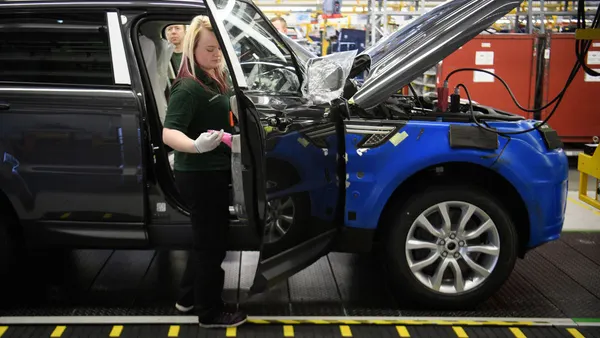Dive Brief:
- Five of the 25 biggest auto suppliers in North America have expressed some skepticism regarding the takeover of electric vehicles, Industry Week reported last week.
- Suppliers — including American Axle & Manufacturing, Dana and Magna International — believe a hybrid electric engine will be more feasible than an all-electric system. Magna predicts electric cars will only claim between 3% and 6% of the market by 2025.
- A number of suppliers are straddling the middle ground, investing in technology and parts to support the electric car market while retaining their traditional parts availability.
Dive Insight:
With all the talk of the pending prevalence of electric cars, it's curious that so few buyers have purchased hybrids while awaiting greater all-electric availability. According to Bloomberg Businessweek, that's because low gas prices are encouraging buyers to continue their investments in traditional trucks and SUVs.
Sales in electric cars are increasing, however. Chinese sales came to roughly 289,000 in 2016, while Europeans purchased 215,000 electric cars and U.S. drivers bought 150,000. Compared to the 92 million internal-combustion vehicles sold globally in 2016, of which 17.6 million were sold in the U.S., it is still unclear how avid electric car interest may be.
This leaves parts suppliers in an uncertain position. Carmakers are continuing to heavily invest in research and development of electric vehicles and batteries, while also striving to wring more power and profits out of internal-combustion engines. As a result, auto parts suppliers are caught between present demand and the promised future. The transition toward more electric parts will likely be a slow growth process.












